How Many of These 1960s Dances Do You Remember?
Prepare to take a trip to the 1960s! Dancing was a huge part of that era, with many memorable moves that still bring happiness today. From the Twist to the Mashed Potato and the Pony, these dances c...

By Modern60
Last Updated on,
May 15th, 2025

Tongue cancer is a rare form of cancer that usually develops on the surface of a person’s tongue. While it is not generally painful, it can lead to symptoms that can cause pain in the mouth. Since identifying the condition in its early stage is essential, one should know the symptoms and be on the lookout for them. Ignoring the signs can cause the disease to worsen and lead to other complications.
Here are a few of the most common symptoms of tongue cancer:
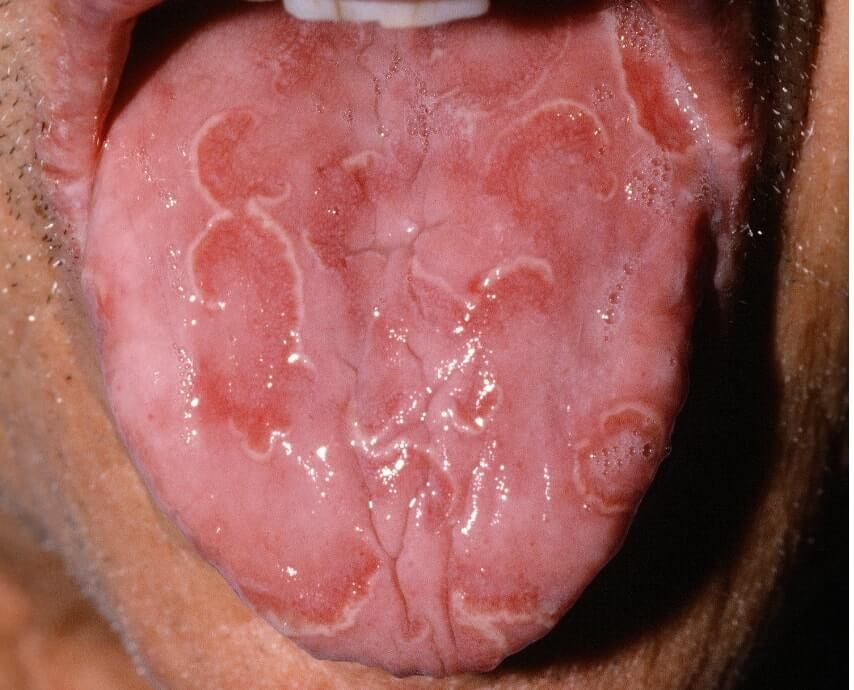
A sore or an ulcer on the tongue that does not heal is among the early signs of tongue cancer. While tongue ulcers are a common sight, they heal within ten days with the help of simple home remedies. Sure, some may require treatment, but they eventually get better. If the sores or ulcers do not heal and seem to persist, it may be a sign of tongue cancer. Such sores may also bleed easily. So, if someone notices persistent sores on their tongue that bleed or have not healed for an unusually long time, they must inform a doctor.
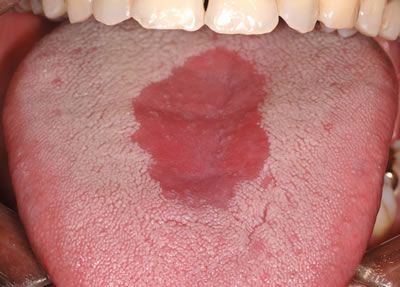
Another common symptom is the appearance of red or white patches on the tongue. Sometimes, these red or white tongue cancer lesions may appear on the lining of one’s mouth. If one notices such patches or lesions, they should consult a doctor. The patches could sometimes appear for other reasons, so one should not draw any conclusions.
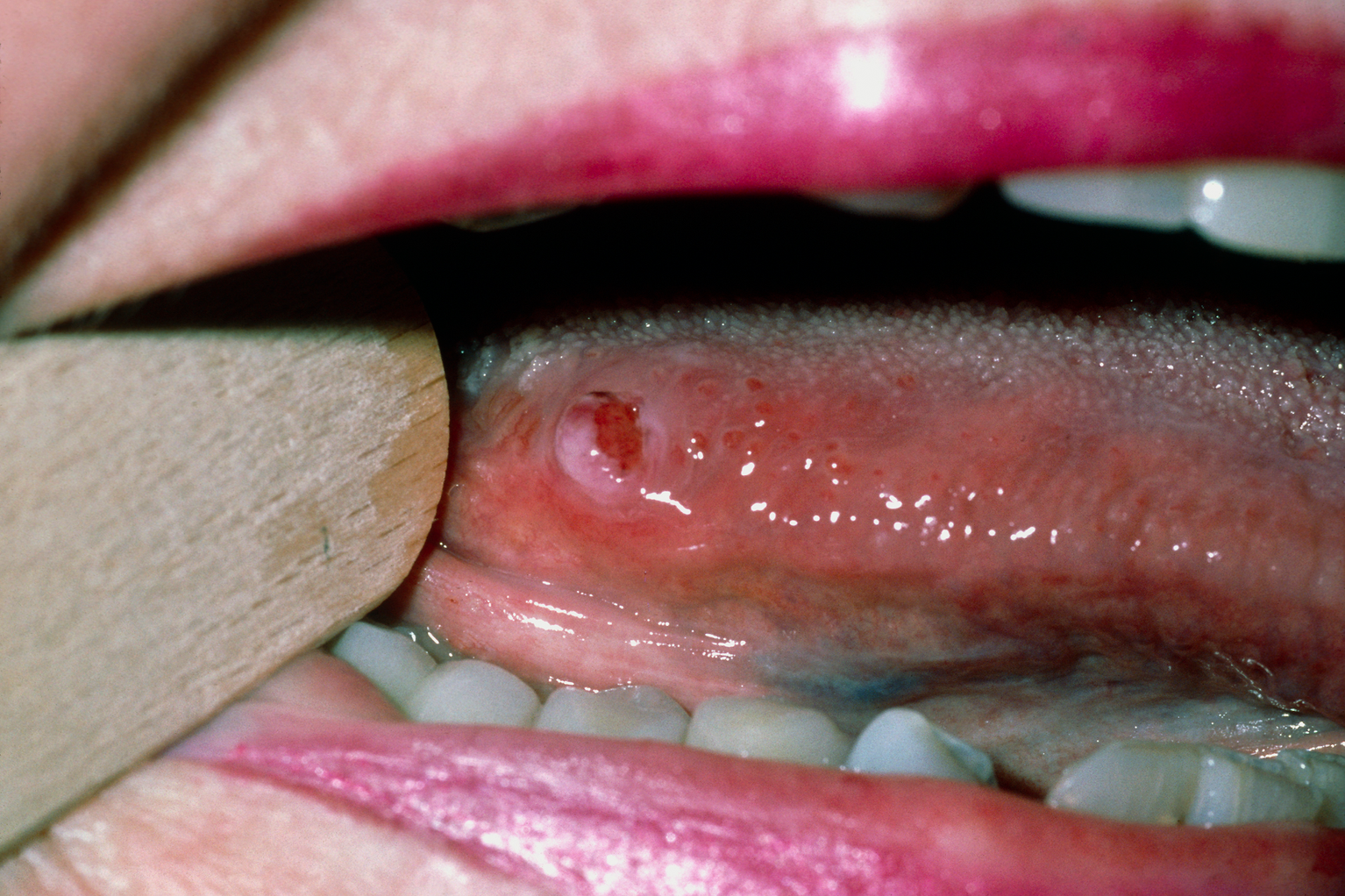
Tongue cancer can also form a lump on the tongue. If someone feels a lump on their tongue that does not seem to disappear, they must consult a doctor immediately.
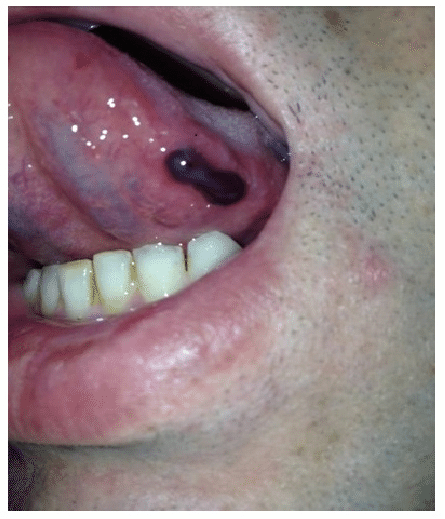
If the tongue begins bleeding without injuries, accidents, or a clear reason, it may point toward tongue cancer in particular instances.

Tongue cancer can develop not only in the mouth but also in the throat. In the latter’s case, one of the main symptoms is pain in the throat. Since throat pain can also occur due to several other reasons, such as a cold or a viral infection, one should talk to a healthcare professional to know the real cause.
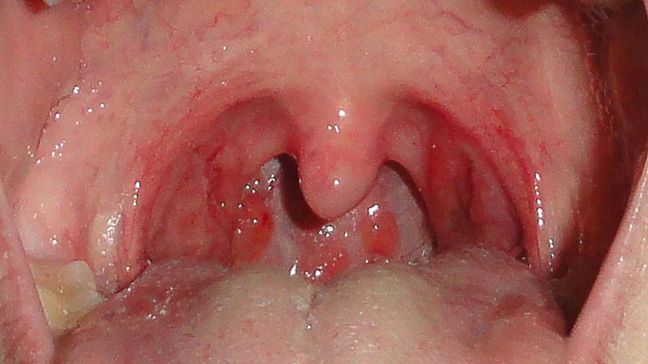
Along with pain, tongue cancer can cause continuous soreness in the throat. But again, sore throat is very common and may result from numerous less-severe ailments like the flu. So, if an individual has a persistent sore throat, they should ensure the doctor knows and seek their advice as soon as possible.

Another common symptom to watch out for is a pain in the jaws that does not result from an injury. This pain may make chewing, talking, or moving the jaws difficult.

Tongue cancer can change a person’s voice. In most cases, it makes one’s voice hoarse.
Along with the signs listed above, one may notice discomforts like:
While these symptoms give an idea of what tongue cancer looks like, one should not draw any conclusions on noticing them. In this scenario, the best action would be to consult a doctor as soon as possible. The earlier treatment begins, the better the condition can be managed.
Cancer is a complex health problem that can be managed well by learning more about it. Here are some crucial details about the condition’s diagnosis, prognosis, and causes:
A doctor may suggest various methods to check for tongue cancer. A common option is tongue cancer biopsy, which includes taking some tissue samples of the tongue for examination. Diagnosis also includes tests like MRIs and CT scans that help take pictures of the tongue cancer. These tests help doctors determine patients’ survival rates based on their tongue cancer stage.
The prognosis of tongue cancer depends on how well the treatment works. Glossectomy is a form of surgery doctors usually perform to remove a part of the tongue affected by cancer. Other treatment options for tongue cancer include chemotherapy, radiation therapy, immunotherapy, and targeted therapy, all commonly prescribed for cancer.
While there are no definite or clear causes of tongue cancer, one should know the few risk factors. These include exposure to HPV (a type of virus), a lack of dental care, and poor oral health. Those with these risks should always be watchful of the signs.

The Editorial Team at Modern60 is a group of highly skilled professionals with diverse backgrounds in journalism, content creation, editing, and digital media. They bring a wealth of experience and expertise to ensure that every piece of content meets our strict editorial guidelines and quality standards. The team is dedicated to delivering accurate, well-researched, and engaging content across various subjects, including health, wellness, lifestyle, and current events. With their commitment to upholding the highest standards of journalism and content creation, the Modern60 Editorial Team is the driving force behind our mission to empower and inspire our readers.


Unlock expert insights and tips with our exclusive ebook. Enter your email to get your free copy.
Please check your email for a welcome message from Modern60. If it's not in your inbox, kindly check your spam or junk folder
There are no comments yet